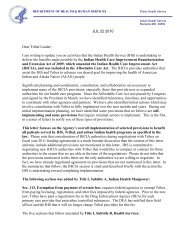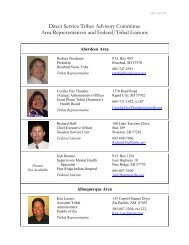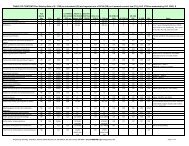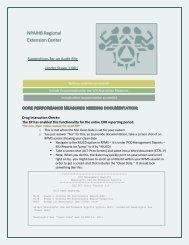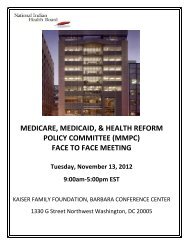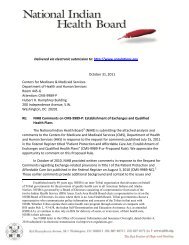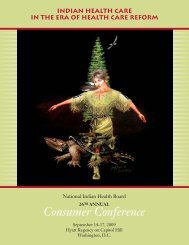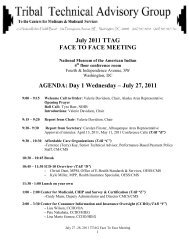âHealth Insurance Premium Tax Creditâ (IRS REG-131491-10)
âHealth Insurance Premium Tax Creditâ (IRS REG-131491-10)
âHealth Insurance Premium Tax Creditâ (IRS REG-131491-10)
- No tags were found...
You also want an ePaper? Increase the reach of your titles
YUMPU automatically turns print PDFs into web optimized ePapers that Google loves.
NIHB Analysis of Proposed Rule: Health <strong>Insurance</strong><strong>Premium</strong> <strong>Tax</strong> Credit (<strong>IRS</strong> <strong>REG</strong>-<strong>131491</strong>-<strong>10</strong>)(2) <strong>Premium</strong>s paid for the taxpayer. <strong>Premium</strong>s another person paysfor coverage of the taxpayer, taxpayer’s spouse, or dependent aretreated as paid by the taxpayer. 21NIHB supports the clarification that payments by some other person will be treatedas a payment “by the taxpayer.” For purposes of AI/AN, the ability to credit coverage paidfor on behalf of the taxpayer is important. Since AI/ANs are entitled to free health carethrough the Indian Health Care Providers, as a general rule, they are understandablyreluctant to pay premiums directly. Consistent with § 402 of the IHCIA, the ExchangeEstablishment proposed rule 22 created an option to allow and facilitate the payment ofpremiums on behalf of AI/AN by Tribes or tribal organizations.NIHB assumes that “person,” as it is used in proposed § 1.36B-3(c)(2), includesIndian tribes, tribal organizations, urban Indian organizations, and other entities that mightchoose to pay or subsidize payments. If this understanding is correct, we recommend thateither a definition of “person” be added to clarify that it is defined broadly or someexplanation be added to the preamble to the final rule. If the understanding is incorrect,then we recommend that (c)(2) be amended to make the current text clause (i) and that anew clause (ii) be added, to read:(ii) <strong>Premium</strong>s an Indian tribe, tribal organization, or urbanIndian organization (as those terms are defined in section 4 ofthe Indian Health Care Improvement Act) or any other entitypays for coverage of the taxpayer, taxpayer’s spouse, ordependent who is an Indian are treated as paid by thetaxpayer. 235.2. Definition of Dependent (§ 1.36B-2(b)(3))In defining a dependent of a taxpayer, the proposed § 1.36B-2(b)(3) “Dependents”states that ”an individual is not an applicable taxpayer if another taxpayer may claim adeduction for the individual for a taxable year” (emphasis added). We recommend that theword “may” be eliminated and the word “claim” be changed to “claims.” A person who lives inanother person’s household may be considered a dependent, but they may also file their owntaxes. If they choose to file their own taxes and are not claimed as a dependent for a deduction2122Id.CMS-9989-P, ―Establishment of Exchanges and Qualified Health Plans,‖ published in the FederalRegister July 15, 2011, page 41916 with discussion on page 41879.23We have not included a citation to how ―Indian‖ should be defined since we discuss this issue inextensive detail in ―NIHB Analysis and Comment on Definition of ‗Indian‘ in Proposed Rules to ImplementProvisions of the Patient Protection and Affordable Care Act‖ that is attached here and was a supplementalsubmission to the NIHB comments on CMS-9989-P: Establishment of Exchanges and Qualified Health Plans.We are hopeful that consideration of the issues raised there will lead to resolution of what we believe to beinherent ambiguity in the Act that needs to be resolved by HHS and <strong>IRS</strong> in their final rules.National Indian Health Board Page 8 of 23 October 31, 2011



